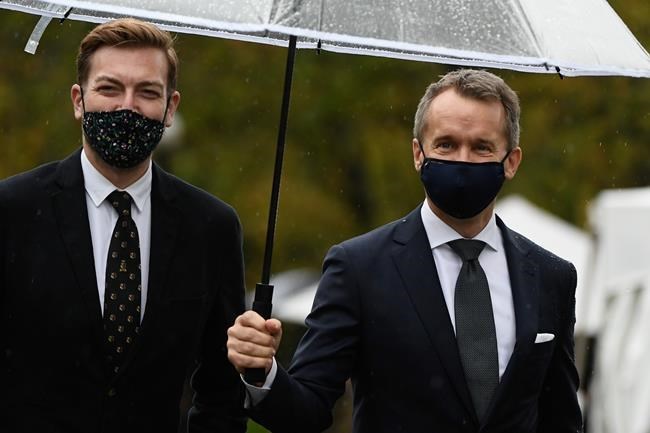TORONTO — Business and labour groups are urging the new federal cabinet to get to work on priority economic issues such as the skilled labour shortage, supply-chain issues, fixing employment insurance, ensuring an equitable recovery, and laying out a broad vision for growth.
The challenges will be taken on by a cabinet that includes consistency in key economic roles such as Chrystia Freeland as finance minister and François-Philippe Champagne in innovation and industry, as well as new appointments including Seamus O’Regan as minster of labour, Dominic LeBlanc taking on infrastructure, and economic development being added to Mary Ng's portfolio.
The economy, however, didn't seem to be front and centre as the new cabinet was rolled out Tuesday, said Robert Asselin, senior vice-president of policy at the Business Council of Canada.
“Given all the short-term challenges on the economy, rising inflation, lot of pressure points on the supply side, it didn’t come through as something that was top of mind.”
He said that labour shortages are a key area of concern for Canadian executives and that it will require co-ordination across numerous ministries to ensure there's enough skilled people in the right industries.
“That requires a private-public partnership. You need to re-skill a lot of people, you need to up-skill a lot of people, you need to transfer people from certain sectors to others very fast, otherwise it’s going to choke the growth of a lot of companies.”
Perrin Beatty, chief executive of the Canadian Chamber of Commerce, said it was good to see the consistency in the finance and industry roles, noting Freeland's track record and that Champagne has a strong understanding of business.
He said one of the most notable appointments was Mélanie Joly as minister of foreign affairs, which comes as Canada works through issues with the U.S. on the auto sector and pipelines and with China on issues such as Huawei and trade.
“It is a very hot portfolio to be taking over at the present time, when we have difficult relationships with our two major trading partners ... these are very important files with very significant economic implications, quite apart from the political relationships.”
Beatty said he hopes to see strong signals in the throne speech that the economy is a priority for the government, as strong growth will help pay for other priority areas such as responding to climate change.
Bea Bruske, president of the Canadian Labour Congress, said the government must prioritize an equitable recovery, as women have been disproportionally impacted by the economic crisis that came with the pandemic.
She said the most immediate priority though is extending support for the 800,000 workers who have been relying on the COVID-19 employment insurance program the government announced last week it isn't extending.
“We know those workers are still struggling, because even though jobs have come back, not all the jobs have come back."
She said many who have gone back to work face precarious and part-time work, and she looks forward to working with O’Regan as labour minister to improve conditions.
“We really have a big agenda for this new government to tackle right off the hop, and so we really want to get that work started as quickly as possible.”
Rebekah Young, director of fiscal and provincial economics at Scotiabank, said she will also be watching the EI reforms, both for how they change the situation for workers, and how the government plans to pay for it.
She said it's clear the current system is too narrow to deal with downturns, but that as the government looks to extend coverage to include the gig economy and elsewhere, it will be important to see if they expect business to cover more.
Elliot Hughes, a senior adviser at Summa Strategies, said he will be following Minister Ng's progress closely, since in addition to economic development she is also charged with international trade, export promotion, and small business.
"That’s a really important piece to watch.”
Hughes said he'll also be watching to see what comes from the various ministers who have had regional economic development added to their portfolio. He said it will be important for the ministers to engage at the grassroots level and become advocates for businesses on the ground.
“They’re only really good if they can be double-ended in a sense, so not just top-down but also bottom up.”
Elsewhere, Hughes said he'll be looking for a renewed innovation strategy, as well as new overall strategy for the country's economy.
“As we emerge from COVID, it is high time the government turn to outlining, and describing, and putting into place a pretty clear, coherent, long-term economic vision.”
This report by The Canadian Press was first published Oct. 26, 2021.
Ian Bickis, The Canadian Press



